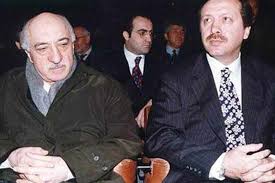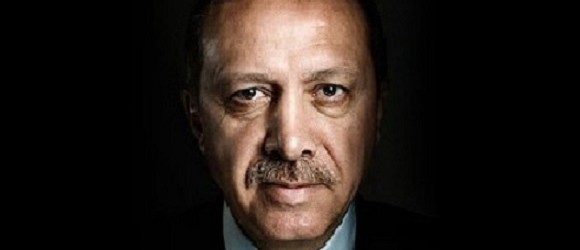The failed coup attempt of July, 15 in Turkey started a chain reaction in the country. Turkish President of the Republic Mr. Recep Tayyip Erdoğan declared emergency law for three months and this was ratified by the Turkish Parliament. Erdoğan now will be able to rule the country by decree laws (kararname in Turkish) without any legal barriers. So far, approximately 50.000 people were kicked out of their jobs from important state institutions including the Prime Ministry, Ministry of Internal Affairs, Ministry of National Education, Council of Higher Education (YÖK), Directorate of Religious Affairs, Turkish National Intelligence Agency (MİT) and state universities for alleged links with the Gülen religious community or “Fetö” (Fethullah Gülen Terrorist Organization) with its new name.[1] Moreover, 15 universities, 35 hospitals, 1043 private education centers (dershane) and dormitories, 1229 non-governmental organizations and 19 unions were shut down.[2] This shows that, Turkey is now officially waging a war against Gülen organization that was hold responsible of the failed coup attempt by President Erdoğan and other top state officials. President Erdoğan immediately began to demand the arrest of Gülen[3], who has been living in self-imposed exile in United States for nearly two decades. Gülen issue has already become a political matter between USA and Turkey.

Erdoğan and Gülen were once close allies
Since military coups are illegal in a democratic system, the government’s deeds are understandable for many analysts in Turkey. However, extraordinary measures taken by the government are not caused by the decision of a proper democratic trial, which increases suspicions about the real intentions of the government. It is, in deed, very normal to question the intentions of the government since these steps are not taken after a proper trial that will prove the Gülenist conspiracy against the government. However, all these measures are taken via emergency law without any democratic legal decision. This shows that, President Erdoğan now controls all three powers within the democratic regime; execution, legislation and judiciary. Moreover, Turkish media already declared Gülen community responsible from the failed coup attempt, a very strange attitude for free press, which proves that there is a strong governmental pressure over the Turkish media. That is why, international press, unlike Turkish media, seems very much concerned about the decay of Turkish democracy. In addition, whether they are guilty of this coup attempt or not, Gülen community has a good reputation in the world especially among liberal circles that encourage and support interfaith dialogue. Gülen was even once described by Victor Gaetan in a Foreign Affairs article as the “Martin Luther of Islam” thanks to his anti-extremist Islamic views, often labeled as “moderate Islam” (ılımlı İslam). Gülen previously met with Pope Jean-Paul II and declared his respect for Christians and Vatican.[4] Recently, Gülen criticized ISIS in a WSJ article and called all Muslims around the world to fight with “extremist cancer”.[5] Considering Turkey’s support for radical revolutionary groups in the Syrian civil war, President Erdoğan’s fight against Gülen’s moderate Islam tradition might be interpreted in the world in a negative way, like Turkey is making transition into radical Islamic rule. That is why; President Erdoğan and the ruling JDP (Justice and Development Party) should use democratic mechanisms to fight against coup plotters and Gülen community. It is also a discussion topic whether we should blame the whole organization or religious community or not, if few people from this community engaged in coup attempt or other criminal activities. Most importantly, without a democratic trial, Turkish government and media should not have pointed out a group or a person as criminal. This shows that, Turkish democracy is still very far from the very basic notions of democratic systems such as “rule of law” and “innocent until proven guilty”. This same lack of democratic mentality is also very obvious in President Erdoğan’s appeal to Mr. Obama, since Erdoğan tells Obama to hand over Gülen to Turkey as if United States is a country without democracy and rule of law and Presidents can do whatever they want without legal procedures.[6] Although Turkey had a very similar experience recently, in Ergenekon and Balyoz cases, which eventually showed that none of the people who were labeled as criminal by the government and media were guilty, the country’s lynching culture is still very visible in its media’s attitude towards criminal charges.
Reactions from the international community also prove my hesitations. For instance, European Union (EU) Commissioner in charge of European Neighborhood Policy and Enlargement Negotiations, Mr. Johannes Hahn stated that “the arrest lists were available already after the event”, which indicates that this was previously prepared to be used at a certain stage by Erdoğan and JDP government.[7] U.S. Secretary of State, Mr. John Kerry stressed that NATO is following closely after coup developments in Turkey and as a NATO member, Turkey should continue to “uphold democracy, including tolerating diversity”.[8] However, both Kerry and U.S. President Mr. Barack Obama condemned the coup attempt and backed the elected government.
As an objective observer who has no sympathy both for the government and Islamic communities, what I understood from this experience is that this might be a staged event in order to take the revenge of the Ergenekon and Balyoz cases. With these cases, Gülen affiliated Islamic groups tried to shake down the Kemalist secular establishment in Turkey and eventually failed. Now, it seems like pro-secular groups and Erdoğan are using this process to get rid of all Gülenists and moderate Islamists. By “staged event”, I’m making reference to the extensive powers of Turkish intelligence and police force, which are able to monitor all deeds of its citizens without legal decision or authorization. It would be non-sense to think that Turkish intelligence and police force were not following or monitoring the deeds of Turkish generals, who have a worldwide reputation for military coups due to 4 successful and many unsuccessful coups in Turkish political history. Thus, it is very logic to assume that the government and the state already knew the coup plotters and did not prevent the coup attempt in advance in order to use it later as a leverage to realize Turkish transition into Presidentialism.
What comes next is also an important discussion. It seems like President Erdoğan will establish a new Presidential system in Turkey similar to the strong Presidential model in Russia, Azerbaijan and Kazakhstan. However, unlike these countries’ secular Presidentialism, Turkish Presidentialism might include Islamic elements as well. For instance, US-based Turkey expert Mr. Soner Cagaptay thinks that President Erdoğan and his followers might use this event to realize a counter-revolution similar to that of Iran in 1979.[9] For these countries, Presidentialism might be a good alternative since they were established in the 1990s, but as a country that has been ruled by multi-party democracy since 1950, a Presidential system without necessary checks and balances would be a step back for Turkish democracy. Erdoğan supporters also ask for the legalization of death penalty for coup plotters, a notion that creates question marks about the democratic tendencies of Turkish Islamists. Erdoğan also supports this request and says he will support capital punishment if the parliament legislates it.[10]
There are many other skeptical voices about Turkey’s democratic future as well. For instance, Financial Times points out the risks of institutional collapse in Turkey[11], whereas Diego Cupolo from DW underlines the increasing isolation of secular Turks.[12] Claire Berlinski and Ali Kıncal think that the coming days would be dark for Turkey[13] and Kemal Kirişçi from Brookings Institution points out Erdoğan’s ambitions to make transition into Presidentialism by using this event as an opportunity.[14] President Erdoğan also does not deny this aspect and says that this event is a “gift from God” to him.[15] French newspaper Le Monde also claims that after coup developments in Turkey are alarming.[16] Famous Turkish journalist Mr. Can Dündar fears the government might use this event as an excuse to get rid of all opposition groups including Kurds, seculars and leftists.[17] Ömer Taşpınar on the other hand thinks that the result of this failed coup attempt is not very different from a successful coup; detentions, imprisonments etc.[18] Moreover, Amnesty International asserts that detainees are tortured by the Turkish police.[19]
The relation between Turkey’s changing foreign policy and coup attempt is also open to discussion. For instance, Barın Kayaoğlu claims that if the coup attempt is made by U.S. ally Gulenists, this might be related to Turkey’s recent rapprochement with Russia and Israel.[20] It is a fact that Russia and many other Caucasian states do not approve Gülen and his schools and accuse Gulenists for collaborating with CIA.[21] Gülen’s schools were already closed down in Russia and many other Caucasian states due to these accusations.[22] It is also interesting that Iranian official news agency recently claimed that the Russian intelligence service warned President Erdoğan for the coup attempt.[23] These news might be the earlier signs of the emergence of a new axis between Turkey-Russia-Azerbaijan-Iran against U.S. and EU. Losing his friends and support in the West, President Erdoğan might again turn towards the “East” and engage in close collaboration with Putin and his allies. Turkey’s strong energy dependency on Russia will also facilitate this trend. However, Professor Henri Barkey from Wilson Center thinks that Turkey stills needs U.S. and NATO support.[24]
My personal opinion is that, Turkish government has the right to protect itself from coup plotters, but the methods implemented by the government are wrong. Instead of emergency law and collective punishment, Turkish government could have used democratic legal procedures. Anti-democratic procedures might eventually lead to failure of these processes similar to the Ergenekon and Balyoz cases. Although emergency law now allows the JDP government to do things that are not open to legal supervision, in the years to come, these acts might turn into controversial legal cases against Turkey at the European Court of Justice. Turkish media’s attitude towards detainees also proves that this country still has a long way to go for reaching the level of a developed democracy. How to handle religious (Islamic) communities (Gülen community and other religious brotherhoods) and sects is also an important matter for Turkish democracy. Turkey could use American (Mormons, Amish community etc.) or European model (Opus Dei) concerning religious communities; allowing all religious groups without any discrimination in the private sphere, but to be careful in dealing with them in the public sphere since they have their own hierarchy which might overshadow the state’s official hierarchy. In addition, in order not to give a false image of Turkey to the international community, President Erdoğan might embrace a more democratic Presidential model similar to American Presidentialism and starts defending secularism instead of Islamism from now on. Concerning foreign policy, rapprochement with Russia in Syria seems inevitable but weakening of the relations with U.S. and NATO will not help Turkey especially at a time when risks are growing due to terrorist organizations around Turkey including ISIS, PKK and PYD.
Dr. Ozan ÖRMECİ
[1] http://m.t24.com.tr/haber/cumhuriyet-tarihinin-en-buyuk-operasyonu-kamuda-49-bin-321-kisi-gorevden-alindi,350825.
[2] http://www.sozcu.com.tr/2016/gundem/iste-kapatilan-universiteler-1326939/.
[3] https://www.theguardian.com/world/live/2016/jul/15/turkey-coup-attempt-military-gunfire-ankara.
[4] http://www.hurriyet.com.tr/fethullah-gulen-papa-bulusmasi-39005400.
[5] http://www.wsj.com/articles/muslims-must-combat-the-extremist-cancer-1440718377.
[6] http://www.yeniasir.com.tr/gundem/2016/07/20/erdogan-obamadan-gulenin-iadesini-istedi.
[7] https://www.neweurope.eu/article/eu-commissioner-hahn-on-turkey-coup-attempt-lists-were-ready/.
[8] http://www.independent.co.uk/news/world/europe/turkey-coup-could-threaten-countrys-nato-membership-john-kerry-warns-a7142491.html.
[9] http://www.wsj.com/articles/turkey-faces-its-iran-1979-moment-1468797632.
[10] http://www.bbc.com/turkce/haberler-turkiye-36831255.
[11] https://next.ft.com/content/f2ce34e0-4f2e-11e6-88c5-db83e98a590a.
[12] http://m.dw.com/en/secular-turks-feel-isolated-in-post-coup-turkey/a-19409408.
[13] http://www.the-american-interest.com/2016/07/20/dark-days-ahead/.
[14] http://www.cfr.org/turkey/turkeys-prospects-after-coup-attempt/p38144.
[15] http://www.theworldweekly.com/reader/view/magazine/2016-07-21/gift-from-god/8724.
[16] http://www.amerikaninsesi.com/a/le-monde-turkiye-darbe-sonrasi-endise-verici-gelismeler/3432551.html.
[17] https://www.theguardian.com/commentisfree/2016/jul/22/biggest-witch-hunt-turkish-history-coup-erdogan-europe-help.
[18] http://www.amerikaninsesi.com/a/taspnar-darbe-olmasaydi-turkiye-bundan-farkli-yerde-olmayacakti/3430903.html.
[19] http://www.amerikaninsesi.com/a/af-orgutu-gozaltindakilerin-iskenceye-maruz-kalmasi-kabul-edilemez/3424619.html.
[20] http://nationalinterest.org/feature/turkeys-failed-coup-what-happened-whos-behind-it-what-17015.
[21] http://www.ulusalkanal.com.tr/gulene-karsi-turk-rus-isbirligi-makale,3677.html.
[22] http://www.trthaber.com/haber/dunya/azerbaycanda-gulen-okullari-kapatildi-132141.html.
[23] http://www.sozcu.com.tr/2016/gundem/irandan-flas-iddia-darbe-istihbaratini-ruslar-verdi-1324257/.
[24] http://www.amerikaninsesi.com/a/henri-barkey-turkiye-nato-ve-abd-ye-muhtac/3431062.html.

























































